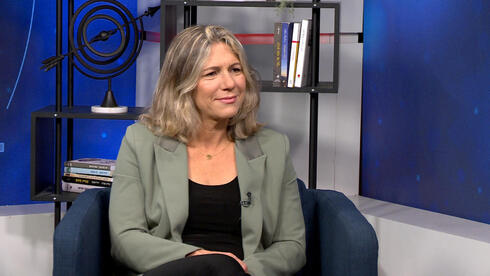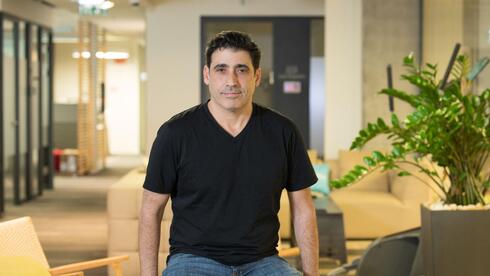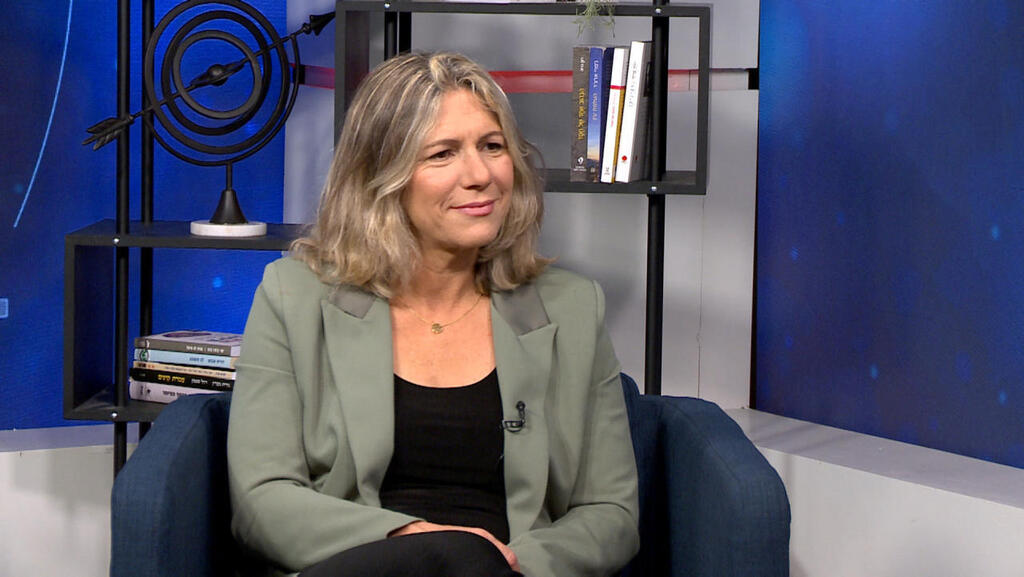
Six After War
"Women must be at the decision-making table - let’s give them a chance"
As part of Calcalist and Poalim Tech's series of interviews "Six After War", Amir Kurtz spoke with Dr. Osnat Levtzion-Korach, director of the Yitzhak Shamir Medical Center about the role of the health system in the rehabilitation of Israeli society during and after the war
Amidst the turmoil of war, Dr. Osnat Levtzion-Korach, Director of Yitzhak Shamir Medical Center, shares a poignant moment of trauma on October 7. In an interview with Amir Kurtz as part of the interview series "Six After the War" by Calcalist and Poalim Tech, she recounts the challenges faced in managing patients from the Nova music festival and Gaza border shelling. As a mother of three soldiers, the harrowing experience unfolds as she grapples with the responsibility of her professional role and personal fears. Now, as the healthcare system deals with returned abductees and looks ahead, Dr. Levtzion-Korach emphasizes the need for continued support, especially in mental health, anticipating a post-war functional crisis.
Levtzion-Korach is experienced in difficult times having previously managed the Hadassah Mount Scopus Hospital in Jerusalem during the knife intifada and during the Coronavirus pandemic, but when she was asked to share one moment of trauma, she returned to October 7.
"We are in the Rishon Lezion area within missile range all the time and we had to decide immediately where to transfer the patients," Levtzion-Korach says. "We started receiving patients both from the Nova music festival and from the shelling along the Gaza border - helicopters with wounded from the battlefield and from other hospitals. I personally (she is married to Dr. Amit Korach, director of the Cardiac Surgery Center at Hadassah) have four sons, three of whom are fighters in elite units and I suddenly realized that one of them was at Kibbutz Beeri. These are moments when you are functioning and working but your heart is torn until you receive a message that he is okay. It's very tough to be a mother of three soldiers. I work, I function, but I can hardly breathe. It's an exercise in lack of control, in the understanding that you have no way to influence anything, just hope for the best and trust them and their surroundings."
In the last few days, your hospital received dozens of returned abductees, how do you prepare for this?
"We have been preparing for the return of the abductees for a month and they asked us to accept the Thai foreign workers. The idea is to give them a place that is isolated and sterile from prying eyes and the media which is as pampering and homey as possible. These lovely guys fell into a war that was not theirs, and they also tried to explain to their Hamas captors that they are not in any way affiliated to any conflict with Israel. Since they didn't have families waiting for them, we formed a family for them and the entire hospital staff did it with passion and love. I greeted them at the helicopter, I explained to them that they had arrived in a safe place and that we were very happy to take care of them. We brought a small Buddha for them and they performed their prayer rituals. I took the women shopping in the hospital mall. When they left for Thailand, we had a farewell ceremony and there wasn't a dry eye in the place."
What’s the biggest difficulty you encounter now? What do you think will be the challenges of the healthcare system at the end of the war?
"Now all the hospitals are functioning exceptionally. The health system has proven itself to be one of the systems that functioned best from the beginning of this crisis. In very little time we were prepared to evacuate the patients and treat 400 wounded to date, 170 of them in just the first two days. The main challenge we have is with safety (against missile attacks). We are now building another floor for emergencies, but we need to move forward to the stage where the entire hospital will be properly protected and I look forward to the help of the State of Israel in this matter, you cannot rely only on donations. There is a difficulty in that we have over 75 doctors in reserve service, so everyone pitches in and we do what is necessary together."
Even before the call ups of medical staff to reserve duty, the hospital was understaffed.
"That's right. When we talk about after the war, then unfortunately we will return to the situation before the war. Even before October 7, all the hospitals in Israel were in terrible deficits, not because of management, but because of salary agreements that were not fulfilled, the dollar that ran amok. All of these directly affect us and we are talking about hundreds of millions of shekels in the entire system. Then came the war and during the war we don't talk about money, but all the hospitals know that we will return to talk about money. I really hope that the State of Israel will understand what the right priorities should be and that money should be invested in health, and I hope that the fact that we performed so well will not harm us, resulting in that they think that even without more manpower and budgets we can manage and do amazing work. It doesn't work like that.
"The State of Israel spends less than 7.5% of its GDP on health, while the average in the OECD countries is 10.5%, and the only reason the health system functions this way is thanks to the amazing, dedicated and committed human capital. Also, the health system has been proving for years that Israel-Arab coexistence is possible and we work well together, even in light of October 7."
One of the failures that existed before the war and became more apparent during it is the crisis in mental health.
"It is very difficult to recruit a psychiatrist for a hospital today. The state of general hospitals is much better than the state of mental health. The State of Israel must first invest in mental health. They successfully reformed the income of psychiatrists, but there is a tremendous shortage of therapists. To book an appointment with a child psychiatrist has to sometimes be done a year in advance. Even booking it privately (not through the HMO), is not much better."
And the problem will only get worse when after the war displaced residents and IDF soldiers and reservists return home with post-trauma and they too will need to receive treatment in the medical centers.
"Certainly. Unlike other wars, this time it's not just the soldiers, there is an entire country in trauma. We have a trauma center that mainly treats soldiers with post-trauma with a holistic approach, including pressure chamber treatments. We know today that when post-trauma is diagnosed, there is also a structural change in the brain, and the results in the chamber are very good. At the beginning of the war, we opened the center for citizens and we already started treating the survivors of the Nova festival. But the major functional crisis is not now, it will come later when people from the Gaza border area will have to function and go back to work and manage their homes, so we anticipate that there will be a very large functional crisis dealing with post-trauma."
In addition, Levtzion-Korach points out that all women's organizations predict that there will be an increase in domestic violence against women. "The men come home from the reserves with weapons, the mass distribution of weapons for self-defense has begun, everyone is on edge and we are very afraid that the ones who will suffer from this will be the women, so there should be a lot of awareness and support from everyone."
Related articles:
- "Only high-tech will take the State of Israel out of the place it is in financially"
- "For every fallen soldier, for every murdered civilian, let’s put together a new innovative startup," says entrepreneur Izhar Shay, whose son was killed by Hamas
- “Israel must transition from the Startup Nation to the Innovation Nation”
They say that October 7 brought about a change in conceptions, which conception has changed for you?
"One of the things that bothers me the most is the ignoring of the testimonies of the IDF lookouts and the officers in 8200, a pattern of ignoring what smart and knowledgeable women said. This leads to the issue of women's involvement - women must be at the decision-making table and then better, smarter and more balanced decisions will be made, let’s give them a chance."















